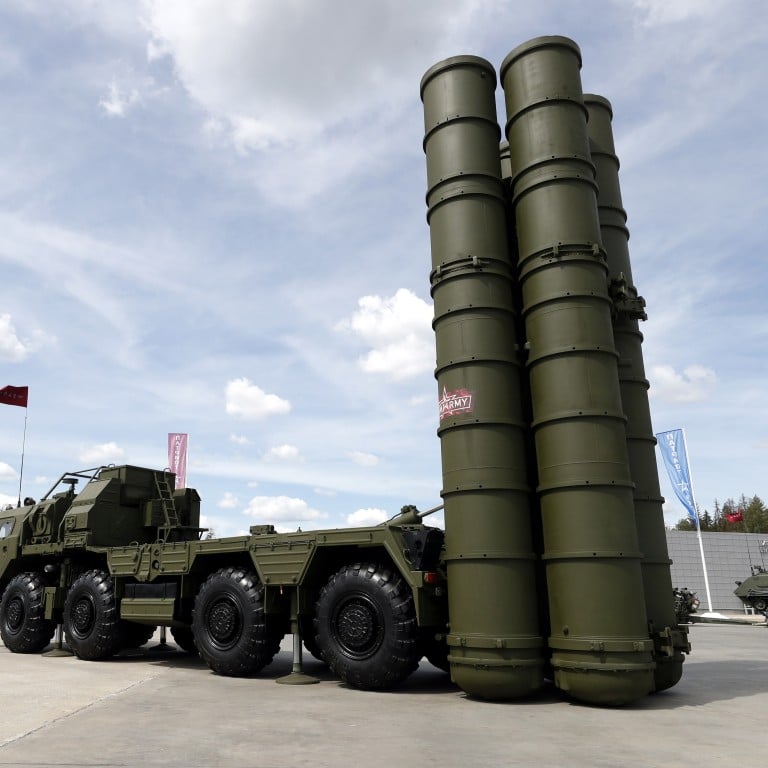Philippines' Resolve: No Surrender On Missile System Despite Chinese Pressure

Table of Contents
Strategic Justification for the Missile System
The Philippines' decision to acquire and deploy a new missile system is rooted in a clear strategic justification centered around national security and territorial defense. This move is not an act of aggression, but rather a necessary step to protect the nation's sovereignty and interests.
-
Enhanced Territorial Defense: The missile system significantly enhances the Philippines' ability to defend its territorial waters and Exclusive Economic Zone (EEZ) in the contested South China Sea. This crucial capability allows for a more robust response to incursions and illegal activities within its sovereign territory.
-
Deterrence Against Aggression: The deployment serves as a potent deterrent against potential aggression from external actors. The increased defensive capabilities dissuade any attempts to violate Philippine sovereignty and challenge its maritime claims. This is a key element of effective deterrence strategy.
-
Alignment with National Security Strategy: The acquisition of this missile system is a direct outcome of the Philippines' broader national security strategy. The overarching goal is to strengthen the country's defense capabilities and protect its vital national interests. This strategic alignment demonstrates a commitment to a comprehensive approach to national security.
-
Contribution to Regional Stability: By bolstering its defense capabilities, the Philippines contributes to regional stability. A strong and capable Philippines acts as a counterbalance, discouraging further encroachment and promoting peaceful resolution of disputes. The focus is on maintaining a secure and stable environment in the region.
The Philippines' government has clearly articulated that the missile system is purely defensive and intended to protect its sovereign rights. This acquisition is a vital step in bolstering its capacity to respond to threats and maintain peace in the strategically important South China Sea. The emphasis is on self-defense and maintaining regional peace, not initiating conflict.
China's Pressure and Diplomatic Responses
China has openly expressed its displeasure with the Philippines' acquisition of the missile system, leveraging diplomatic channels to voice concerns about the potential impact on regional security. This pressure underscores the complex and often tense relationship between the two nations.
-
Diplomatic Objections: China's objections are primarily focused on the potential for escalation and destabilization of the region. They argue the missile system could raise tensions and complicate already fraught diplomatic relations.
-
Philippines' Firm Rejection: The Philippines has firmly rejected China's objections, asserting its unwavering commitment to self-defense under international law. The country emphasizes its right to protect its sovereign territory and resources. This is a clear demonstration of the Philippines' resolve.
-
Seeking International Support: The Philippines has actively sought support from its allies and international partners to counter Chinese pressure and bolster its position. This includes seeking diplomatic backing and exploring potential military alliances.
-
Highlighting Geopolitical Tensions: The situation highlights the ongoing tensions and complex geopolitical dynamics in the South China Sea. It underscores the critical importance of international law and peaceful dispute resolution.
While the Philippines values its relationship with China, it remains steadfast in its commitment to protecting its national interests. This unwavering stance underscores the country's commitment to international law, particularly the UN Convention on the Law of the Sea (UNCLOS), which underpins its claims in the South China Sea. This commitment to international legal norms is central to the Philippines' position.
International Support and Alliances
The Philippines' decision has garnered support from key allies, strengthening its resolve and demonstrating the international significance of this issue.
-
US Support and Other Alliances: The Philippines has received significant support from key allies, notably the United States, which has provided both diplomatic and potentially military backing. This demonstrates a broader international concern over China's actions in the region.
-
Diplomatic and Military Backing: This support provides crucial diplomatic leverage and potentially strengthens the Philippines' military capabilities. It demonstrates a unified front against potential aggression.
-
Encouraging Multilateral Cooperation: The Philippines’ actions encourage stronger multilateral cooperation among nations concerned about China's assertive actions in the South China Sea. This is vital for maintaining a rules-based international order.
The support received from international partners underscores the global concern about maintaining peace and stability in the region. This broad-based support bolsters the Philippines' confidence in its decision to implement its national defense strategy.
Conclusion
The Philippines' unwavering stance on the missile system, despite significant pressure from China, demonstrates a clear commitment to its national security and sovereignty. The acquisition is a strategic move to strengthen its defense capabilities, deter potential aggression, and uphold its rights in the South China Sea. The country’s resolve, bolstered by international support, underscores the importance of safeguarding national interests in the face of complex geopolitical challenges. The Philippines' actions serve as a significant case study in the ongoing struggles for sovereignty and security in the Asia-Pacific region. This resolute stance on the missile system sets a precedent for other nations facing similar challenges in the region. The ongoing situation necessitates continued vigilance and proactive diplomatic efforts to maintain peace and stability while upholding the principles of international law in the South China Sea. Continued investment in the Philippines' missile defense system is vital for ensuring national security and regional stability.

Featured Posts
-
 Huuhkajien Tulevaisuus Benjamin Kaellman Avainasemassa
May 20, 2025
Huuhkajien Tulevaisuus Benjamin Kaellman Avainasemassa
May 20, 2025 -
 Hmrc Child Benefit Important Notices You Need To See
May 20, 2025
Hmrc Child Benefit Important Notices You Need To See
May 20, 2025 -
 The Pointless Comeback How Schumacher Disregarded Crucial Red Bull Insights
May 20, 2025
The Pointless Comeback How Schumacher Disregarded Crucial Red Bull Insights
May 20, 2025 -
 Nyt Mini Crossword Solutions For March 27th
May 20, 2025
Nyt Mini Crossword Solutions For March 27th
May 20, 2025 -
 El Hijo De Michael Schumacher Mick Se Separa Y Usa App De Citas
May 20, 2025
El Hijo De Michael Schumacher Mick Se Separa Y Usa App De Citas
May 20, 2025
